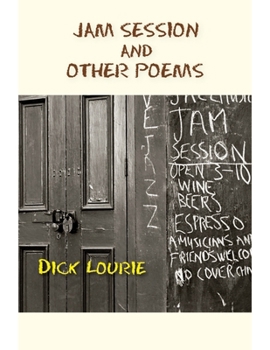Jam Sessions
The title poem is cast in the form of a dialogue between Blues and Jazz--two old friends whose paths have repeatedly crossed and diverged over the last hundred-plus years. They chat about their respective histories; about politics; about their music--what they share and how they differ; about race and racism, and the paradoxes of the Harlem Renaissance era. The conversation culminates in a good-natured though competitive card game of their own invention. In the course of the wide-ranging conversation between these friends, the poet pays special homage to, among others, Count Basie and Langston Hughes.
In the coda to the poem, Blues and Jazz explore the jam session itself as an element of their music that is critical to them both; the talk rises to philosophical heights as they discuss the Platonic ideal of the jam session and whether it has been reached by the work of the great Slim Gaillard.
The presence of music--frequently particular pieces from the canon of the American Songbook--is integral to other poems as well, where it serves often as a way of gathering in and focusing a wide range of what's on the poet's mind: "My Old Flame;" "Imagination," "Send in the Clowns" . . .
A section of elegies in the book pays tribute to such influences as Pete Seeger, Clarence Clemons, and the internationally renowned blues singer Big Jack Johnson, with whom Lourie performed for fifteen years.





